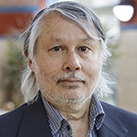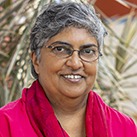What is organisational behaviour?
Organisational Behaviour (OB) is an applied science aimed at understanding individuals and groups in organisations by drawing from various related disciplines such as social and organisational psychology, behavioural economics and management. OB researchers adopt a micro-perspective, looking into individual psychology and behaviour as well as group processes and emergent states, to understand how they contribute to organisational success and survival. The OB research at Cambridge Judge Business School encompasses a range of topics, including creativity, innovation, psychometrics, big data, the future of work, human-AI (artificial intelligence) collaboration, personality, diversity, decision-making, social networking, culture, helping behaviours, and voice behaviour. These subjects should be familiar and relevant to any individuals working within organisations.
The faculty at Cambridge Judge Business School comprises leading scholars in the world. They publish in various top journals, such as the Academy of Management Journal, Administrative Science Quarterly, Organization Science, the Journal of Applied Psychology, Organizational Behavior and Human Decision Processes, and the Academy of Management Annals. They currently hold leadership positions in these prestigious journals, such as Editor-in-Chief, Associate Editor, Consulting Editor, and membership on Editorial Boards.
The OB specialisation of the MPhil in Strategy, Marketing, Operations and Organisational Behaviour is an important part of the Organisational Behaviour PhD pathway.
Learn more about our supervising faculty’s research interests
Vincent Mak
Professor of Marketing & Decision Sciences
About Vincent’s research
Vincent’s research lies in how people and firms make strategic decisions as they interact with each other, and what economic and psychological factors influence those decisions. The topics of his research include pricing, search behaviour, decisions in networks, and competitive strategies. He typically employs the insights and methods of experimental economics, game theory, and psychology to investigate his research questions.
Prithviraj Chattopadhyay
Professor in Organisational Behaviour
About Prithviraj’s research
Professor Chattopadhyay’s research mainly focuses on how team members react to working with teammates who differ on demographic attributes such as race or ethnicity, sex, education, profession, work status and age. Past projects have used a quantitative approach to examine how team dynamics associated with demographic dissimilarity, social identification and status affect team member trust, citizenship, emotions and the extent to which they wield influence in the team. He has served as Associate Editor of the Academy of Management Journal (2016-2019) and is currently Associate Editor of the Academy of Management Discoveries.
Elizabeth George
KPMG Professor in Organisational Behaviour
About Elizabeth’s research
Professor Elizabeth George has 2 main research interests. The first is the consequences of alternative or non-standard work arrangements on the work experiences of individuals. She focuses on how individuals make sense of different types of temporary work or remote, and consequences of this for individuals and organisations. The second area she is working on is how dissimilarity between individuals affects how they view themselves and others at work. In both research areas she is interested how individuals’ views of work arrangements and dissimilarity change over time. She is currently Editor-in-Chief of the Academy of Management Annals.
Yeun Joon Kim
Associate Professor in Organisational Behaviour
About Yeun’s research
Dr Yeun Joon Kim’s research focuses on creativity, culture creation, and artificial intelligence (AI). In his work on creativity, Dr Kim explores how work-relevant information, such as feedback and information structure, impacts employee creativity. In the area of culture creation, he investigates why leaders often fail to create functional cultures and how organisations can create functional cultures. His interest in AI centres on human-AI collaboration. Specifically, he investigates the kinds of people who would benefit the most from collaborating with AI, and whether such collaboration has an impact on human psychology. Dr Kim has published academic articles in diverse academic outlets, such as the Academy of Management Journal, Organizational Behavior and Human Decision Processes, and the Journal of Management. He currently serves on Editorial Board of the Academy of Management Journal.
Andreas Richter
Professor of Organisational Behaviour
About Andreas’ research
Professor Richter’s research interests include creativity and innovation in teams, team processes and dynamics. Within these broader themes, he is particularly interested in how perceptions of time and temporal dynamics affect creativity and innovation. He applies a variety of research methods in his studies, including surveys and interviews, experiments, and meta-analysis. Andreas has previously served as Associate Editor for Applied Psychology: And International Review, and currently serves as Consulting Editor for the Journal of Applied Psychology, as well as on the editorial board of the Academy of Management Journal. Prior to joining Cambridge Judge, he worked for Instituto de Empresa Business School.
David Stillwell
Professor of Computational Social Science
Academic Director of the Psychometrics Centre
About David’s research
Professor Stillwell’s research uses big data to understand psychology. He published papers using social media data from millions of consenting individuals to show that the computer can predict a user’s personality as accurately as their spouse can. Follow-up research found that personalising an advert to the recipient’s psychology is more effective than generic ads. Given that a large part of our lives is mediated through digital devices which collect big data about us, how can we use this data to better understand customers, employees or managers from behavioural traces like their social media activity, emails, or purchase records?
Patrizia Vecchi
Assistant Professor in Organisational Behaviour
About Patrizia’s research
Dr Vecchi’s research interests include interpersonal relationships in organisations, social networks, interpersonal cognition, and teamwork. She taught professionals and executives around the world in topics such as negotiation, and power and politics. She is currently the Academic Programme Director for the Cambridge Rising Women Leaders Programme.
Curriculum
By default, a student on the Organisational Behaviour specialisation of the MPhil in Strategy, Marketing, Operations and Organisational Behaviour writes a dissertation, and takes 6 modules, of which the 5 below are core modules:
Core modules
This research seminar helps you understand a variety of cutting-edge topics in organisational behaviour (OB). The overarching question we try to address is how these topics relate to individual, group and organisational effectiveness. Specifically, the course covers the following content areas:
- making a theoretical contribution to OB
- personality and values
- creativity
- culture
- leadership
- ethics
- affect and cognition
- artificial intelligence and its applications to organisational behaviour
The objectives of this course are to familiarise you with classic and current articles that have shaped the field of organisational behaviour and to prepare you to develop and conduct organisational behaviour research yourself.
This is the first in the sequence of Econometrics modules designed for Research MPhil students who intend to use econometric methods in their PhD research at Cambridge Judge Business School. It is taught in Michaelmas term.
This introductory module develops your capability in using linear regression and associated statistical techniques to examine causal relationships from primarily cross-sectional, observational data. By the end of the module you will be able to specify, estimate, test, interpret, and critically evaluate single equation regression models, with applications in subject areas of management, finance, and business economics.
To carry out empirical research that has the potential to make an original contribution to knowledge in management, finance, business economics and similar fields, it is necessary to exploit the richness and structure of longitudinal as well as cross-sectional, individual-level data. It is necessary to become competent in an array of micro-econometric techniques that help researchers to build into the design of their studies, a variety of complexities (in decision-making, for example) and also compensate for partial observability that is inherent in available data.
This module introduces you to research-level micro-econometric methods. It provides the background required to confidently choose techniques and methods suited to different types of data-sources and models. The focus is on how applied techniques relate to theory, on the insights that can be drawn from their application, and critical interpretation and appraisal of results.
You must have taken the Econometrics I course to take this course.
This course helps you understand a variety of predominantly quantitative research methods, as well as their embeddedness within various research designs. The course is divided into 2 independent content blocks, part A (taking place in Michaelmas term) and part B (taking place in Lent term). It is designed in such a way that part B can be attended without having attended part A previously. Upon completion you’ll have a good understanding of various research methods commonly used in management research, and will have applied this knowledge to your own research project.
One of the following 2 courses, depending on year:
This course provides a foundational survey of the key theories, puzzles, and empirical contributions in strategic management. These include the relationship between different strategies and the resource and capability bundles firms develop, strategic positions they create, and their financial performance and competitive advantage. The course gives attention to how decision makers operate at the upper echelons, such CEOs, executive teams, and boards of directors, and how they shape the firm’s strategic choices. The course also covers substantive research on the changes to competitive and corporate strategies undertaken by firms in connection with the disruptions in the environment. The course involves active student participation and discussions in a stimulating class environment and the critiques of seminal classic contributions and latest research in key strategy topics. It also involves you developing your own research ideas and learning to communicate them effectively. The focus of the module is on developing you for a scholarly research career.
This course surveys the major theoretical perspectives and empirical studies in strategic management research, particularly as it relates to the underlying strategic and organisational processes.
Strategic management is currently one of the liveliest areas in all of the social sciences, in part because of the importance of understanding how to best position organisations and get ahead of competition and in part because of the challenges to traditional theory that have emerged over the past 20 years. Strategy deals with charting the future directions of the firm and implementing these directions to maximise the long-term profits. Accordingly, strategic management and processes address the resources, capabilities and strategic positioning of the firm to create and sustain competitive advantage as well as the psychological and social challenges in implementing organisations’ strategies.
Electives
The elective modules for the Organisational Behaviour specialisation of the MPhil in Strategy, Marketing, Operations and Organisational Behaviour are:
You are introduced to the foundations necessary to conduct research in the 3 areas of marketing, operations and technology management, and finance, with a view to developing your own skills as researchers in these areas and in business in general. This course covers standard models of:
- individual choice under certainty and uncertainty
- production theory
- general equilibrium
- monopoly pricing, price discrimination
- information economics
- behavioural economics
The course gives you some fundamental knowledge of competitive markets, enabling you to leverage your course knowledge to do original research and write papers in your chosen field of research in a business school.
This course covers key theories in the field of strategy, innovation and organisations. We discuss the foundational theories, central debates and key readings that help us understand organisations and their strategies to survive and innovate through both technological and managerial innovations. Discussions include why managers adopt particular courses of action, how innovation is fostered, how are new markets created and how is strategy formulated. The field of innovation, strategy and organisations is inherently interdisciplinary, and so is this course. Accordingly, we not only discuss the underpinnings of research in innovation, strategy and organisations but also a host of related questions that have since become significant to understanding this body of research. The course is based around intensive seminar-based sessions. The format is group debates around contrasting perspectives related to the readings. The course enables you to critically interpret, analyse and problematise scholarly material and develop an understanding of how to make theoretical contributions in the field.
This course focuses on the foundational theories, central debates and key texts that help us conceptualise organisational dynamics. It provides you with advanced reading, writing and interpretation skills relating to, for example, organisational identity, organisational control and theories of entrepreneurship. It is based around intensive seminar-based sessions in which key articles are closely read and discussed. Having completed the course, you will be equipped to interpret and problematise scholarly material relating to the organisation of innovation in a creative and critical manner.
This course is a survey of 3 distinct yet related areas: marketing, innovation and emerging economies. Marketing is the study of the interaction between organisations and markets. Innovation is the study of the commercial exploitation by organisations of new ideas. Emerging economies, such as India and China, are the big economic phenomenon of the contemporary global scene and the theatre in which new opportunities for marketing and innovation are unfolding in real time. This course takes a strategic perspective on these topics, viewing them all from the perspective of the firm and its performance.
This course focuses on 3 elements of qualitative research methodology:
- research philosophy, in which you are introduced to some basic philosophical concepts and tools – particularly in the area of epistemology
- qualitative research methods, where we look at the principal types of qualitative data used in management research and the practical and epistemological issues associated with their collection, analysis and use
- research design, in which you will come to understand the links between theory, methodology and choice of research techniques; the principles and practice of research design and data access and collection using experiment, observation, interviews, surveys and archival and database retrieval; and issues of research validity, reliability, bias and ethics
This course focuses on some key theories and central debates that help us conceptualise the relationship between information systems, innovation, and strategic change. The main texts will draw from information systems, sociology, sociology of technology, and organisation theory. The course examines 3 key themes:
- the role of new information technologies in processes of innovation and strategic change within and between industries
- the role of information systems in enabling innovative work practices and the organisational issues involved in implementing and using technological innovations
- the relationship between information technology and processes of globalisation
In a large number of empirical contexts in finance and management, data are temporarily ordered in the form of time series. The Time Series Econometrics module introduces you to concepts and methods that are appropriate for empirical research in such settings, covering methods for exploratory time series analysis, estimation of dynamic causal effects and forecasting.
Taught by the Faculty of Economics.
This course offers an introduction to the behavioural approach to economics. Among the topic covered are behavioural game theory, intertemporal decision making, neuroeconomics, cognitive biases, decision-making heuristics and addiction. The course includes both theoretical and empirical material, but a recurring theme is the importance of experimental findings both in the laboratory and in the field.
Taught by the Faculty of Economics.
The course introduces students to the economics of networks. This area of research has emerged in the last two decades and it has introduced a set of tools for economists to incorporate network structure in the analysis of individual behaviour and economic outcomes. Topics covered include the formation of networks, the provision of local public goods, coordination, learning, trading, and financial networks. A central focus of the course is the interplay between theory and experiments.
Taught by the Faculty of Economics.
The Industrial Organisation course provides a rigorous treatment of the main concepts in industrial organisation. The course covers both theory and applications.
Taught by the Faculty of Economics.
This course is on development economics and deals with the economic problems of poor countries. It considers some of the main theoretical and analytical issues in development economics as well as the historical development process of now-developed countries. The topics covered are growth, development, poverty, inequality, education, technology, innovation, mutual insurance, finance, savings, weather, climate, health, pandemics, representative democracy, religion, social capital and conflict.
Offered biennially:
This course is for students who wish to pursue a research career in a business school and consists of a mix of lectures and seminar-based sessions in which you read, analyse and comment on selected papers. Following the course, you’ll be able to leverage your course knowledge to do original research and write papers in your chosen field of research.
Topics covered include:
- static games of complete information (normal form games)
- modelling strategic interactions
- iterated dominance and rationalisability
- Nash equilibrium
- application: imperfect competition
- mixed strategies
- dynamic games of complete information (extensive form games)
- extensive form and Nash equilibrium
- subgame perfect equilibrium
- application: product differentiation
- repeated games and one-step deviation
- static games of incomplete information
- motivation
- Bayesian Nash equilibrium
- dynamic games of incomplete information
- perfect Bayesian equilibrium
- signalling
One of the following 2 courses, depending on year:
This seminar-based module is an overview of quantitative modelling approaches to research on marketing problems. Three major areas are covered:
- empirical modelling (econometrics)
- analytical modelling (game theory/industrial organisation)
- experimental economics/behavioural game theory
In each session you’re required to read, analyse and comment on selected papers surrounding the key themes of that session. At least half of every session will be devoted to student presentations and group discussion. Having completed the module, you’ll possess some basic knowledge of quantitative modelling in marketing. You’ll also be able to leverage your course experience to develop an in-depth understanding of relevant topics for a research career at a business school.
This seminar-based module is an overview of issues related to consumer behaviour research in marketing. The module includes readings on marketing research as well as cognate home disciplines such as psychology and behavioural economics. 2 major areas are covered:
- the information processing perspective
- the behavioural decision perspective
In each session you’re required to read, analyse and comment on selected papers surrounding the key themes of that session. At least half of every session will be devoted to student presentations and group discussion. Having completed the module, you’ll possess some basic knowledge that will help you appreciate and conduct consumer behaviour research. You’ll also be able to leverage your learning experience to develop an in-depth understanding of relevant topics for a research career at a business school.
One of the following 2 courses, depending on year:
This course critically examines research that has been conducted in unconventional contexts and that investigates grand challenges, eg poverty, inequality, conflict and climate change. The major themes that are explored include gaining access to novel and unconventional research sites, field-level ethical and moral issues when investigating grand challenges, novel research methods, eg online/digital ethnography, the researcher-practitioner interface, theorising from data gathered from unconventional contexts, and publishing research conducted in novel and unconventional contexts and that investigates grand challenges.
This course examines critical issues concerning digital and social innovation for organisations and the wider society. The module focuses on theories from organisation theory, IS, innovation and management to conceptualise digital and social innovation. Their role in enabling opportunities is discussed as well as the unexpected consequences of innovation for different industries and societies.
This module is designed for you to conduct individual research under the supervision of SMOOB faculty members. Research projects can consist of a thorough literature review related to a specific research question, an in-depth critique of published papers, or a specific application of a research methodology (such as a pilot study on the basis of limited data). Our goal is to familiarise you with the faculty members’ current research and bring you closer to the frontier of knowledge. The module can prepare you for the individual research that you will undertake in PhD studies, and can indeed become the starting point of future PhD research.
Students who do not write an MPhil dissertation may, after consultation with the programme director, take nine modules in total and will need to replace one of the elective modules with an individual research project.








